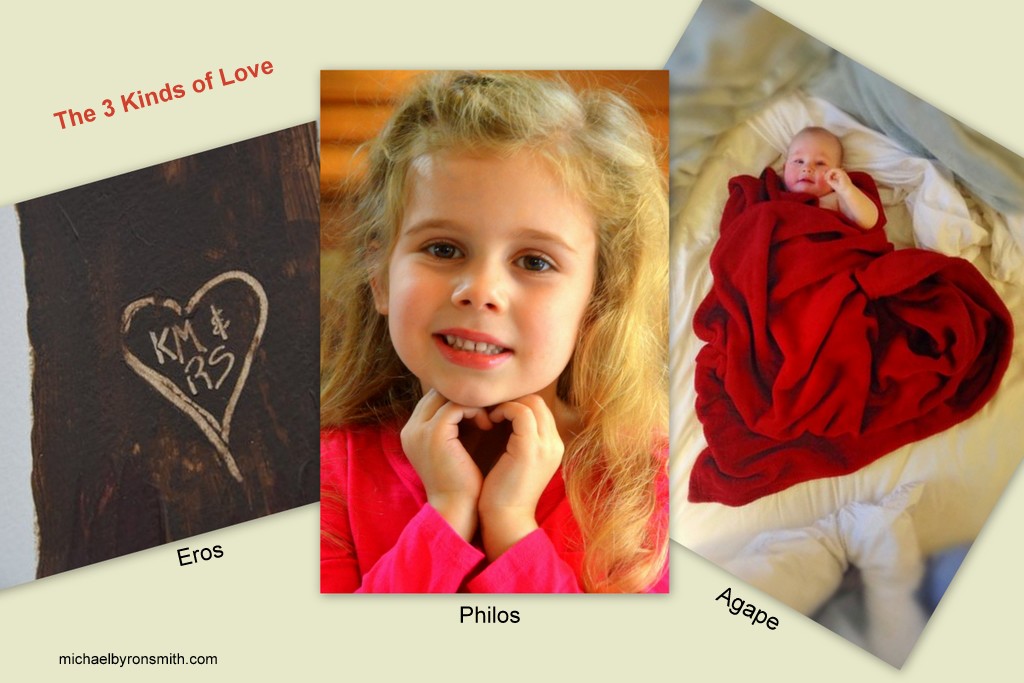Love comes to us and through us in many ways.
- There is romantic love (Eros), the love of new beginnings where common sense may take a back seat to passion.
- There is friendship love (Philos), where two or more people are engaged in a special relationship. They each gain from each other by also giving to each other.
- Lastly, there is unconditional love (Agape), where a person gives love to another person regardless of any benefit in doing so. Whether the love given is returned or not, the person continues to love. This is truly a selfless love and the type of love you find in families.
Clearly, the strongest love is Agape, or unconditional love. A parent will easily give their life for their child. A child will take care of a parent in sickness when the parent can no longer love them back. Brothers, who may fight among themselves, will strongly defend each other from any outside threat. Agape is a self-sacrificing love!
Men and the Three Types of Love
It can be interesting to observe men regarding the three kinds of love. They almost always show their Eros and Philos love. Eros love is almost all show, all action - full of acts of love. Philos love is identified with much action - hugs, bonding ceremonies, and special handshakes. But the strongest love of all, Agape, may often be the weakest love in terms of men committing to it with action. Love is most powerful when it is in the form of an act, when love is a verb.
We can discuss love all day yet never express love, but loving and showing your love is powerful indeed. When a father is listening to his child, he is showing love. When he takes his child fishing, he is showing love. When he says, “I’m proud of you!” he is showing love. Children need this from their father as much as they need it from their mother. Being loved is an essential need of all of us, but particularly important to children.
A smile, a hug, a pat on the back are the signals that remind your child of your love for them. Even disciplining is a sign of love, an act that shows you care. You may know you love your kids, but do they know. Show them a little Philos love occasionally, give them a little of you! It’s what they want most. The more they see it, the less they will need to see it, and their confidence and mental health will soar!
Love is a good subject, but love is even better when used as a verb.






